In the dynamic landscape of the logistics and transportation sector, the capacity of oil trucks plays a pivotal role in determining operational efficiency and cost-effectiveness. At CarMax Vehicle, we understand the intricate balance between capacity, safety, and regulatory compliance, offering a range of oil truck solutions tailored to meet diverse industrial needs. This comprehensive guide delves into the various aspects of oil truck capacity, exploring the factors that influence it, the types available, and how CarMax Trailer stands out in delivering superior performance and reliability.
Understanding Oil Truck Capacity
Oil truck capacity refers to the maximum volume of oil that a truck can safely transport from one location to another. This capacity is not merely a function of the truck’s physical dimensions but also encompasses factors such as weight distribution, safety mechanisms, and compliance with transportation regulations. Optimizing oil truck capacity is essential for minimizing transportation costs, enhancing delivery efficiency, and ensuring the safe handling of hazardous materials.
Key Components Influencing Capacity
Several elements interplay to define the capacity of an oil truck:
- Tank Size and Design: The volume of the tank directly determines how much oil can be transported. Advanced designs can optimize space without compromising structural integrity.
- Chassis Strength: A robust chassis supports heavier loads, enabling higher capacities while maintaining stability and safety.
- Material Composition: The materials used in constructing the tank and chassis affect durability and weight, influencing overall capacity.
- Regulatory Compliance: Adhering to regional and international transportation regulations ensures that capacity limits are maintained for safety and legal compliance.

Types of Oil Trucks and Their Capacities
Oil trucks come in various configurations, each designed to cater to specific transportation needs. Understanding the different types and their respective capacities is crucial for selecting the right vehicle for your operations.
Single-Tank vs. Multi-Tank Trucks
- Single-Tank Trucks: These feature one large tank, ideal for transporting a single type of oil. They offer simplicity and ease of maintenance but may lack versatility.
- Multi-Tank Trucks: Equipped with multiple smaller tanks, these trucks can carry different types of oil simultaneously, enhancing operational flexibility and efficiency.
Refrigerated vs. Non-Refrigerated Tanks
- Refrigerated Tanks: Designed to maintain specific temperatures, these are essential for transporting oils that require temperature control to preserve quality.
- Non-Refrigerated Tanks: Suitable for oils that do not necessitate temperature regulation, these tanks are generally lighter and offer greater loading capacities.

Specialized Oil Trucks
- API Tankers: Certified to meet American Petroleum Institute standards, these tanks ensure compliance with stringent quality and safety norms, often required for transporting refined oils.
- UL Listed Tanks: Compliant with Underwriters Laboratories standards, these tanks provide enhanced safety features, making them suitable for volatile oils.
Factors Affecting Oil Truck Capacity
Ensuring optimal capacity involves a multifaceted approach that takes into account various operational, environmental, and regulatory factors.
Load Distribution
Proper load distribution is critical for maintaining vehicle stability and preventing undue stress on any part of the truck. Uneven loading can lead to increased wear and tear, reduced fuel efficiency, and heightened risk of accidents.
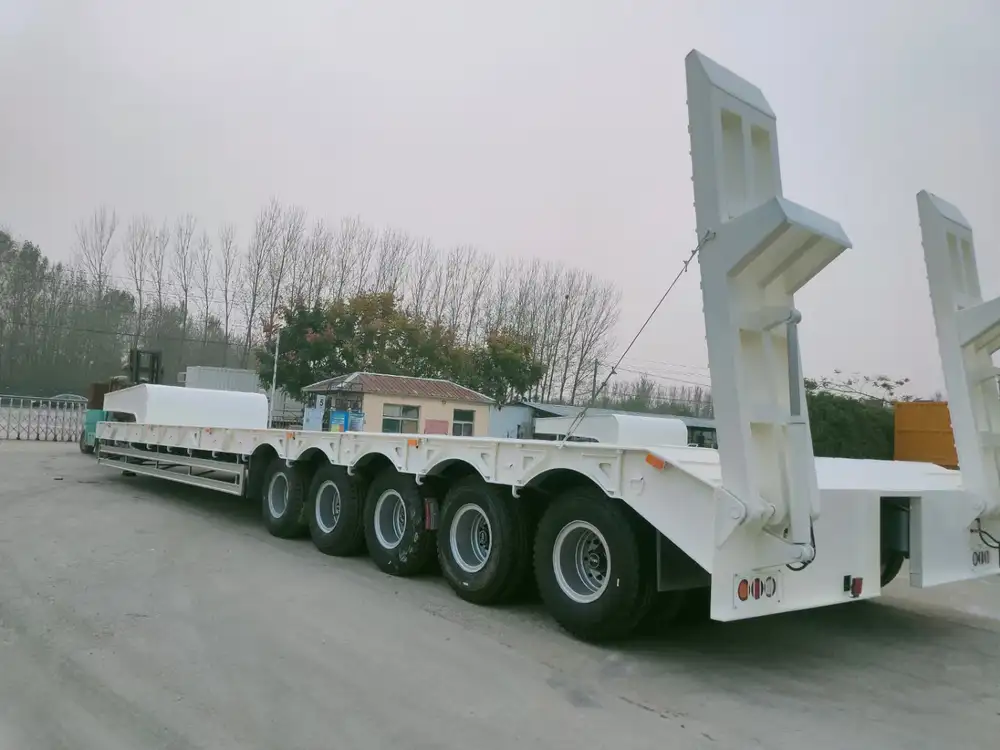
Weight Limits and Regulations
Different regions impose specific weight limits on vehicles to ensure road safety and infrastructure preservation. Compliance with these regulations is non-negotiable, as exceeding weight limits can result in hefty fines and operational disruptions.
Terrain and Route Planning
The nature of the terrain and the routes taken significantly impact the effective capacity of oil trucks. Steep gradients, sharp turns, and poor road conditions can limit safe load capacities and necessitate careful route planning to maximize efficiency.
Weather Conditions
Extreme weather conditions, such as heavy rain, snow, or high winds, can affect truck handling and load stability. Trucks designed to handle a broader range of weather conditions can maintain higher capacities without compromising safety.

Regulatory Standards and Compliance
Adherence to regulatory standards is paramount in the transportation of hazardous materials like oil. These regulations vary by region but generally focus on ensuring the safety of the vehicle, its cargo, and the public.
International Standards
Organizations such as the International Maritime Organization (IMO) and the International Organization for Standardization (ISO) set global standards that govern the transportation of oil. Compliance with these standards ensures that oil trucks meet universal safety and quality benchmarks.
Regional Regulations
Local governments may impose additional requirements, such as specific licensing, insurance, and vehicle specifications. Staying abreast of these regulations is essential for uninterrupted operations and avoiding legal complications.
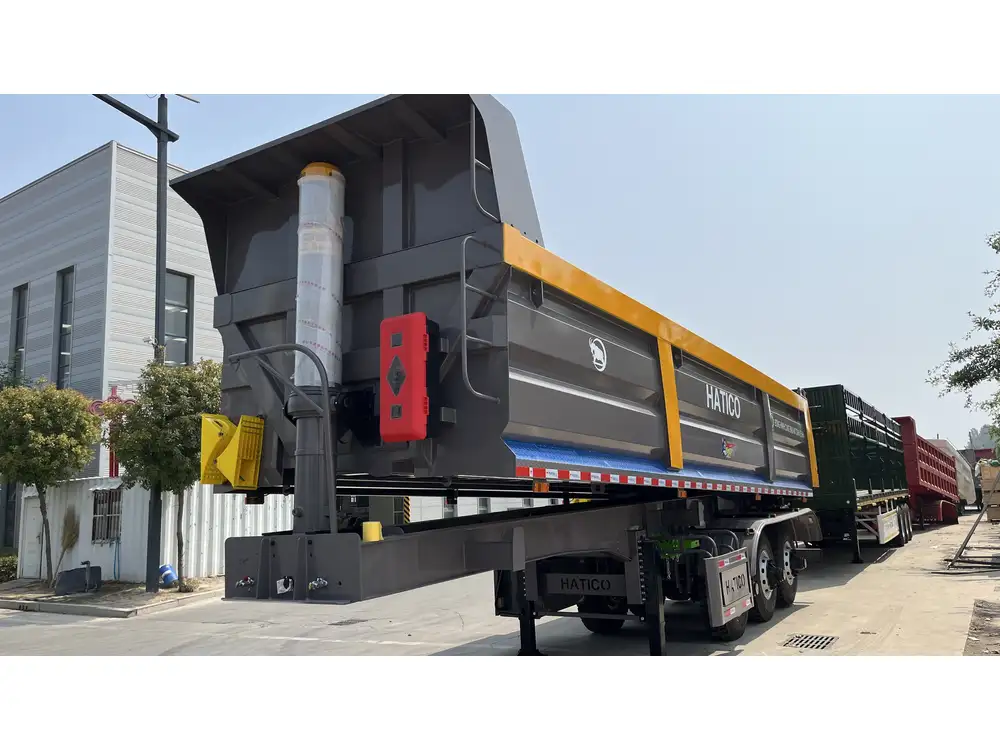
Environmental Considerations
Regulations aimed at minimizing environmental impact, such as emission controls and spill prevention measures, are increasingly shaping the design and capacity of oil trucks. Environmentally compliant trucks not only adhere to legal standards but also contribute to corporate sustainability goals.
CarMax Trailer’s Superior Oil Truck Capacities
At CarMax Vehicle, we pride ourselves on engineering oil trucks that balance capacity with safety, durability, and regulatory compliance. Our diverse range of oil trucks is designed to meet the varying demands of the transportation sector, ensuring that our clients achieve maximum efficiency and reliability.
Advanced Design and Engineering
Our oil trucks feature state-of-the-art tank designs that optimize volume while maintaining structural integrity. By employing lightweight, high-strength materials, we achieve greater capacities without compromising on safety or fuel efficiency.
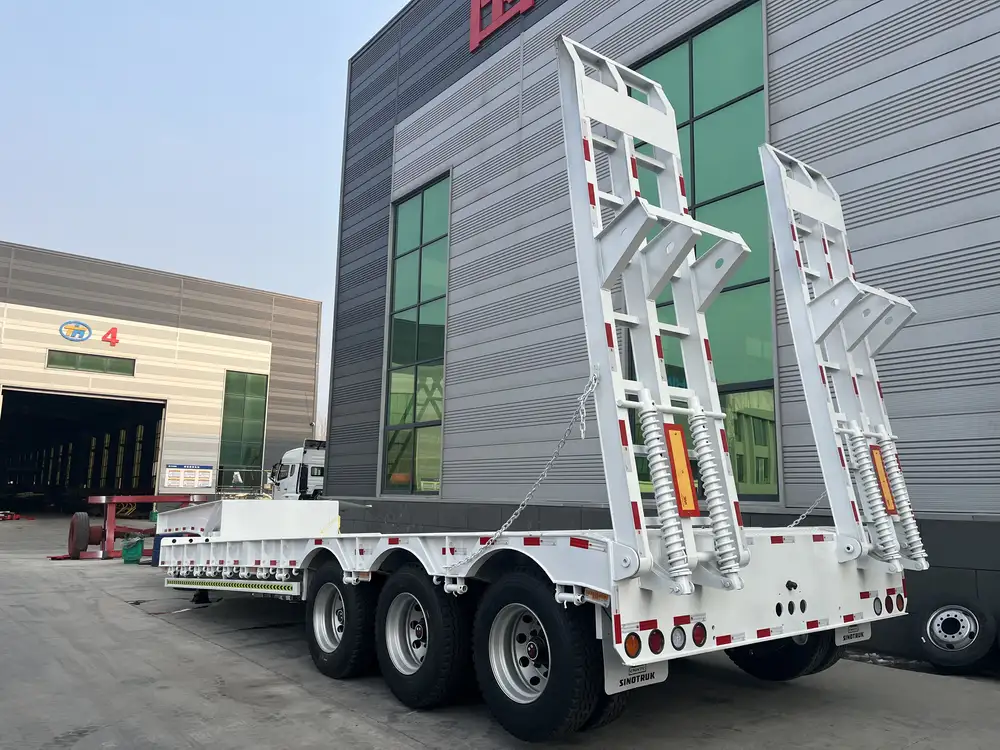
Customizable Solutions
Understanding that each client has unique needs, CarMax Trailer offers customizable oil truck capacities. Whether you require single-tank configurations for specialized transport or multi-tank setups for versatile operations, our solutions can be tailored to fit your specific requirements.
Robust Chassis and Components
The backbone of our oil trucks is the robust chassis, engineered to support heavier loads and endure the rigors of long-haul transportation. Combined with high-quality components, our trucks deliver consistent performance and longevity.
Compliance and Certification
All CarMax Vehicle oil trucks are built to meet or exceed international and regional standards. Our commitment to compliance ensures that our clients can operate with confidence, knowing that their vehicles adhere to the highest safety and quality benchmarks.

Choosing the Right Oil Truck Capacity for Your Business
Selecting the appropriate oil truck capacity is a strategic decision that impacts operational efficiency, cost management, and service reliability. Here are key considerations to guide your selection process.
Assessing Transportation Needs
Analyze the volume and frequency of oil transportation required for your operations. Understanding your daily, weekly, and monthly transport needs will help determine the optimal truck capacity that aligns with your business goals.
Evaluating Load Types
Different types of oil and transportation conditions necessitate varying capacities and configurations. For instance, transporting highly volatile oils may require additional safety features and specialized tank designs, influencing the overall capacity choice.
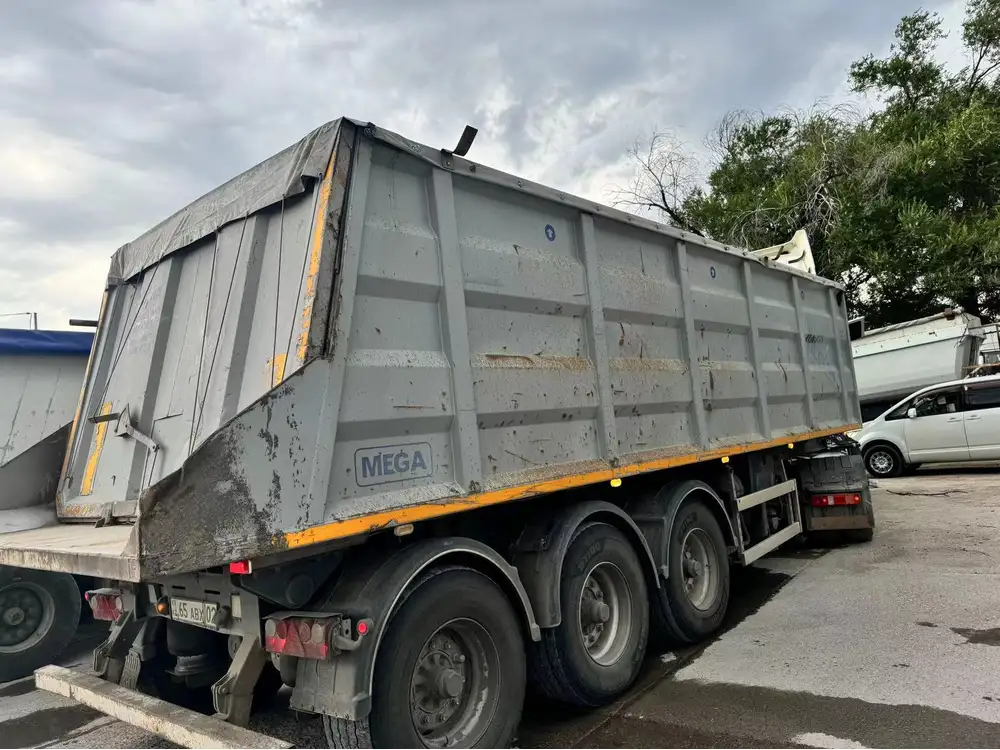
Cost-Benefit Analysis
Balancing initial investment with long-term operational costs is crucial. Higher capacity trucks may offer lower per-unit transportation costs but come with higher upfront expenses. Conducting a thorough cost-benefit analysis ensures informed decision-making.
Scalability and Flexibility
Consider future growth and the potential need for scalability. Choosing a versatile truck capacity that can adapt to increasing demands or changing transportation requirements can provide long-term value and operational flexibility.
Technological Advancements Enhancing Oil Truck Capacity
The evolution of technology has significantly impacted the design and functionality of oil trucks, enabling higher capacities and improved performance.
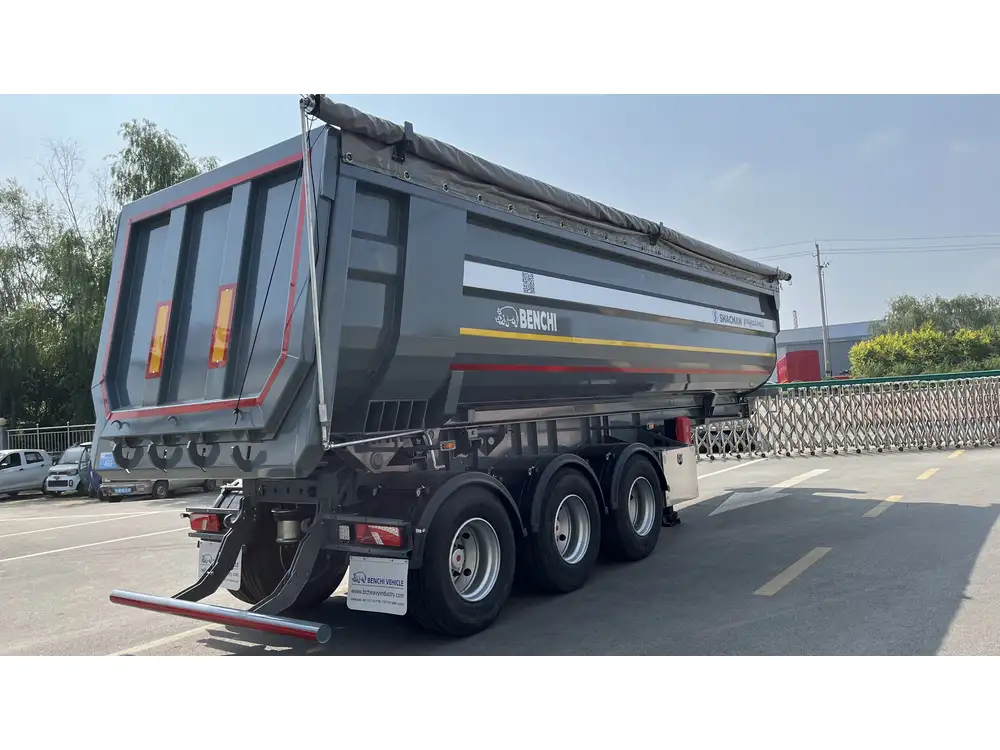
Smart Monitoring Systems
Integrated sensors and telematics systems provide real-time data on load distribution, vehicle performance, and environmental conditions. This technology facilitates proactive management of capacity and enhances safety measures.
Aerodynamic Designs
Innovative aerodynamic features reduce drag, improving fuel efficiency and allowing for higher payloads. Streamlined truck designs contribute to increased capacity without adding significant weight.
Advanced Materials
The use of composite materials and high-strength alloys in tank construction reduces overall vehicle weight while enhancing durability. These materials enable higher capacity trucks without compromising structural integrity.
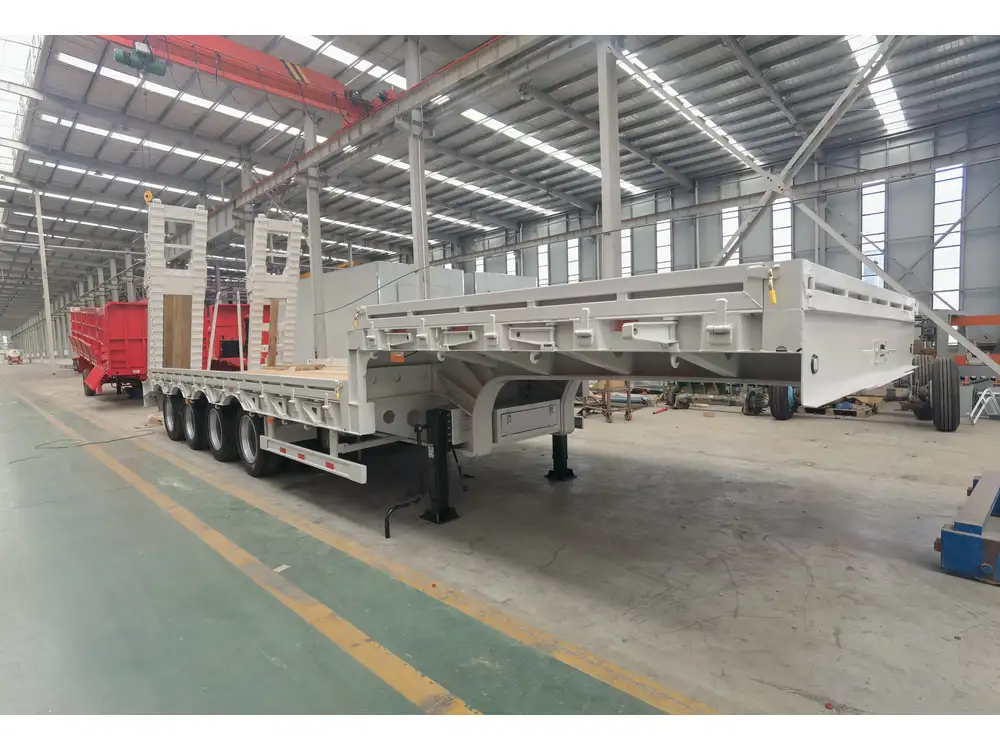
Automation and Robotics
Automated loading and unloading systems streamline operations, reducing turnaround times and allowing for more efficient use of truck capacity. Robotics technology also contributes to precise load management and maintenance procedures.
Safety Considerations for Optimal Capacity
Ensuring safety is paramount when determining oil truck capacity. Proper capacity management minimizes risks associated with overloading, spillage, and accidents.
Load Securing Mechanisms
Robust securing systems prevent cargo shift during transit, maintaining load stability and reducing the risk of accidents. Effective load securing is essential for safe transportation, especially at higher capacities.

Spill Prevention Measures
Equipping trucks with spill containment features, such as double-walled tanks and leak detection sensors, mitigates environmental hazards and complies with safety regulations.
Driver Training and Compliance
Well-trained drivers are crucial for managing load capacities safely. Comprehensive training programs ensure that drivers understand the importance of adhering to capacity limits and safety protocols.
Maintenance and Operational Efficiency
Regular maintenance tailored to the truck’s capacity ensures optimal performance and longevity. Proper maintenance practices reduce downtime and enhance the reliability of oil truck operations.

Routine Inspections
Frequent inspections of tank integrity, chassis strength, and load distribution mechanisms are essential for maintaining safe operating capacities. Identifying and addressing potential issues early prevents costly repairs and operational disruptions.
Scheduled Maintenance
Adhering to scheduled maintenance routines, including engine checks, brake inspections, and fluid replacements, ensures that the truck operates efficiently at its designated capacity.
Performance Monitoring
Utilizing performance monitoring tools helps track the truck’s capacity utilization and operational efficiency. Data-driven insights enable proactive management and optimization of load capacities.
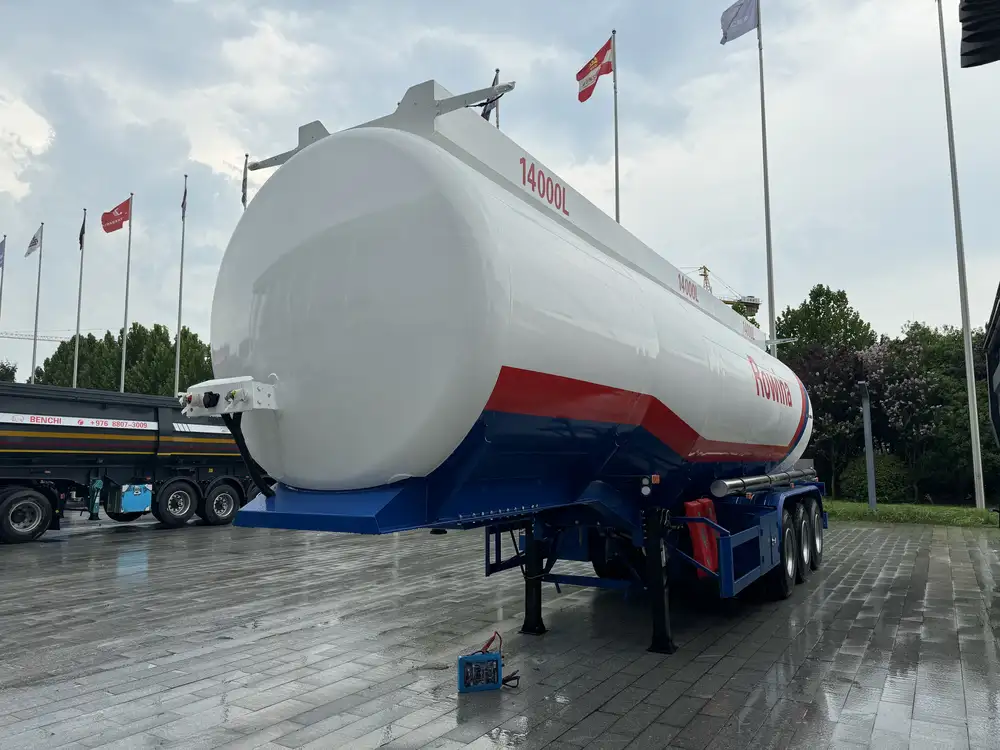
Future Trends in Oil Truck Capacity
The transportation industry is continually evolving, with emerging trends shaping the future of oil truck capacities.
Electrification and Alternative Fuels
The shift towards electric and alternative fuel-powered trucks offers opportunities for enhanced capacity through lightweight battery technologies and innovative tank designs tailored to accommodate new energy sources.
Autonomous Vehicles
The advent of autonomous driving technology promises to revolutionize oil truck capacities by optimizing load management, reducing human error, and enhancing overall efficiency through intelligent routing and load balancing.
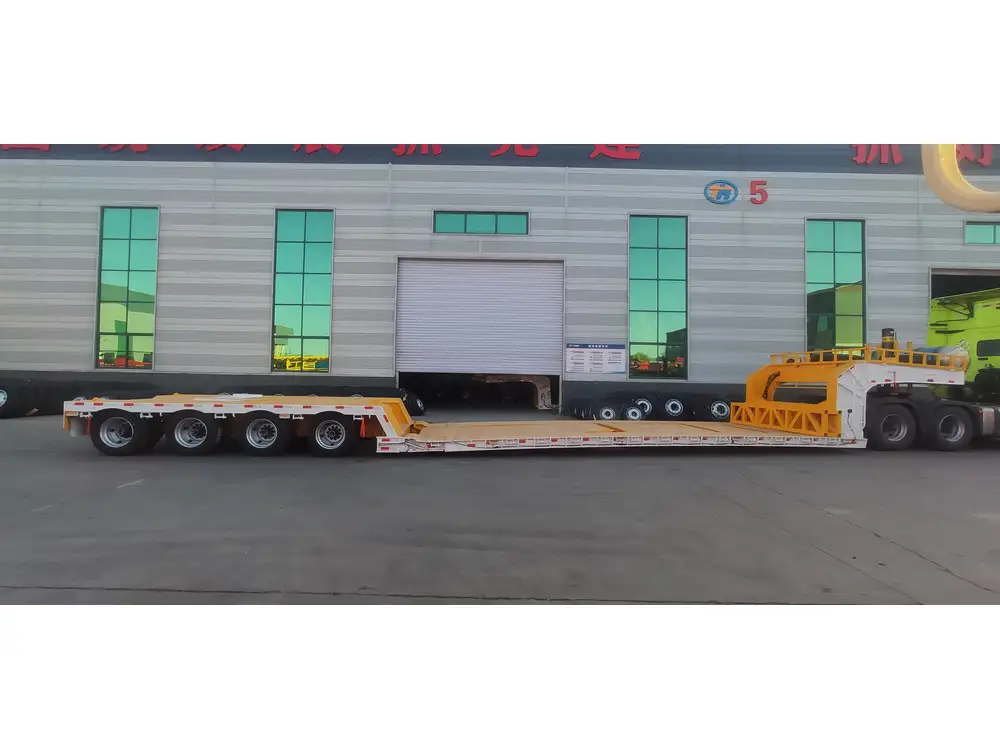
Sustainable Practices
Emphasizing sustainability, future oil truck capacities will integrate eco-friendly materials and energy-efficient technologies, aligning with global efforts to reduce environmental impact and promote responsible transportation practices.
Modular and Flexible Designs
Flexible, modular truck designs will enable easier customization and scalability of oil truck capacities, allowing businesses to adapt swiftly to changing transportation needs and market demands.
Why Choose CarMax Vehicle for Your Oil Truck Capacity Needs
CarMax Vehicle stands at the forefront of oil truck manufacturing, delivering solutions that combine superior capacity with unmatched reliability and safety. Our commitment to innovation, quality, and customer satisfaction ensures that our clients receive the best possible products to meet their transportation challenges.

Proven Expertise
With years of experience in the heavy industry sector, our team of experts leverages deep industry knowledge to design and manufacture oil trucks that excel in performance, capacity, and durability.
Customer-Centric Approach
We prioritize understanding our clients’ unique requirements, offering personalized solutions that enhance operational efficiency and meet specific transportation goals.
Cutting-Edge Manufacturing
Utilizing the latest technologies and manufacturing processes, CarMax Vehicle ensures that our oil trucks are built to the highest standards, delivering consistent quality and performance.
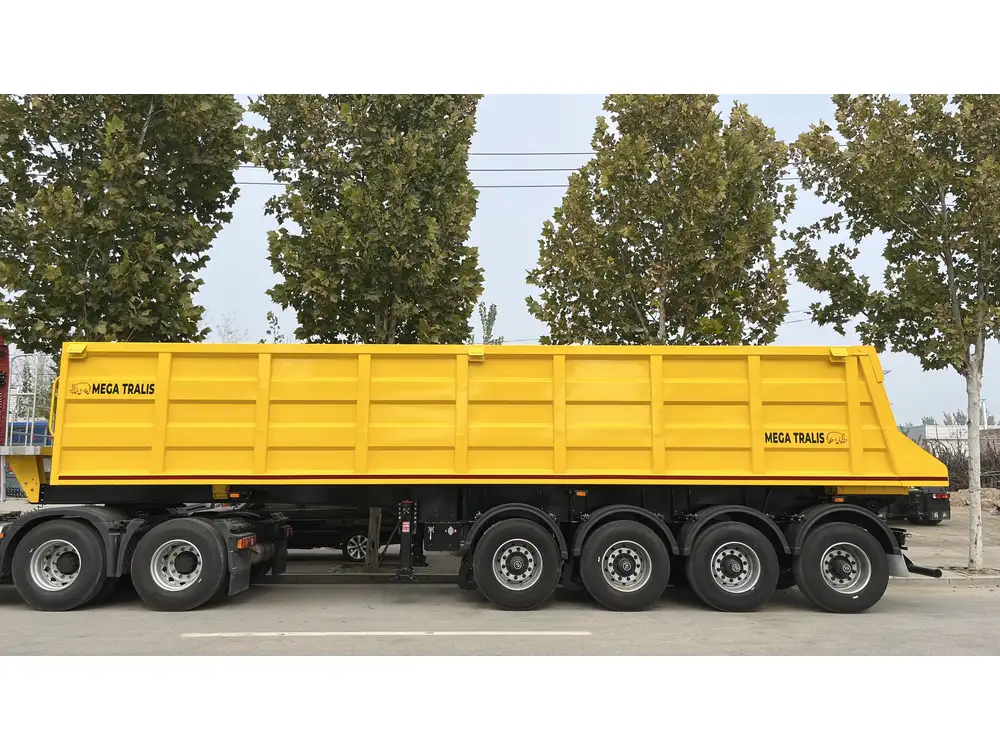
Comprehensive Support
From initial consultation to post-purchase maintenance, we provide comprehensive support to ensure that your oil truck capacity needs are fully met and operational challenges are seamlessly addressed.
Conclusion
Optimizing oil truck capacity is a critical component of effective logistics and transportation strategies. At CarMax Vehicle, we provide expertly engineered oil trucks that maximize capacity while ensuring safety, compliance, and operational efficiency. By understanding the various factors that influence capacity and leveraging advanced technologies, our solutions empower businesses to achieve their transportation objectives with confidence and reliability. Partner with CarMax Trailer to elevate your oil transportation capabilities and drive your business forward with unparalleled efficiency and performance.
Frequently Asked Questions

1. What factors should I consider when choosing the right oil truck capacity for my business?
When selecting the appropriate oil truck capacity, consider your transportation volume, the type of oil being transported, regulatory requirements, cost implications, and the flexibility needed to adapt to future business growth. Assessing these factors ensures that the chosen capacity aligns with your operational needs and long-term goals.
2. How does CarMax Vehicle ensure the safety of its oil trucks?
CarMax Vehicle prioritizes safety through rigorous design standards, the use of high-quality materials, and comprehensive safety features such as double-walled tanks, advanced spill prevention systems, and robust load securing mechanisms. Additionally, our trucks undergo thorough testing to comply with international and regional safety regulations.
3. Can CarMax Trailer customize oil truck capacities to meet specific requirements?
Yes, CarMax Trailer offers customizable oil truck capacities to cater to diverse operational needs. Whether you require single-tank configurations for specialized oil transport or multi-tank setups for versatile applications, we can tailor our solutions to meet your specific requirements effectively.

4. What technological advancements have been integrated into CarMax’s oil trucks?
CarMax’s oil trucks incorporate cutting-edge technologies such as smart monitoring systems, aerodynamic designs, advanced materials for lightweight and durability, and automation features for efficient loading and unloading. These advancements enhance capacity, performance, and overall operational efficiency.
5. How does CarMax Vehicle support maintenance for its oil trucks?
CarMax Vehicle provides comprehensive maintenance support, including routine inspections, scheduled maintenance services, and performance monitoring tools. Our dedicated support team ensures that your oil trucks remain in optimal condition, minimizing downtime and extending the lifespan of your vehicles.



